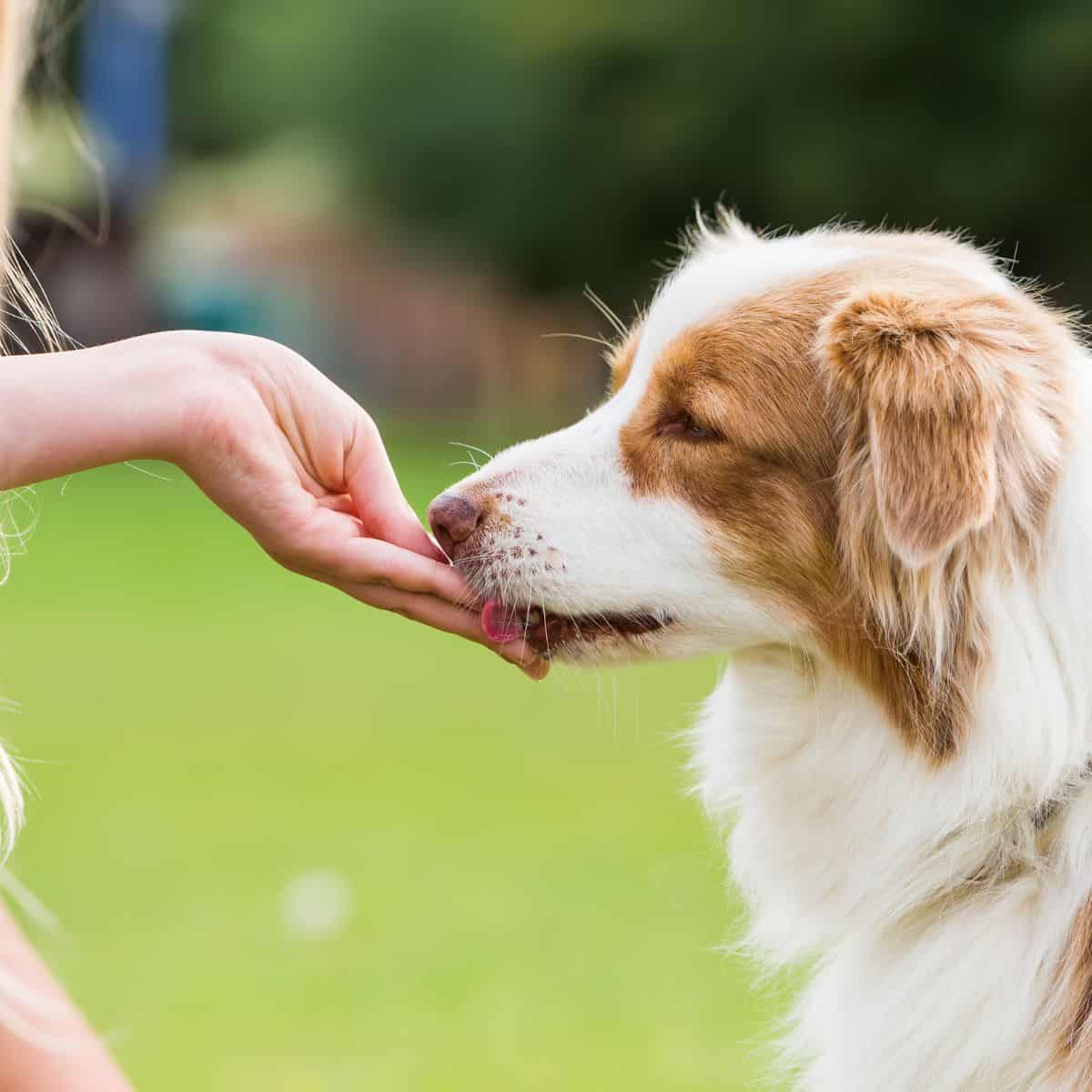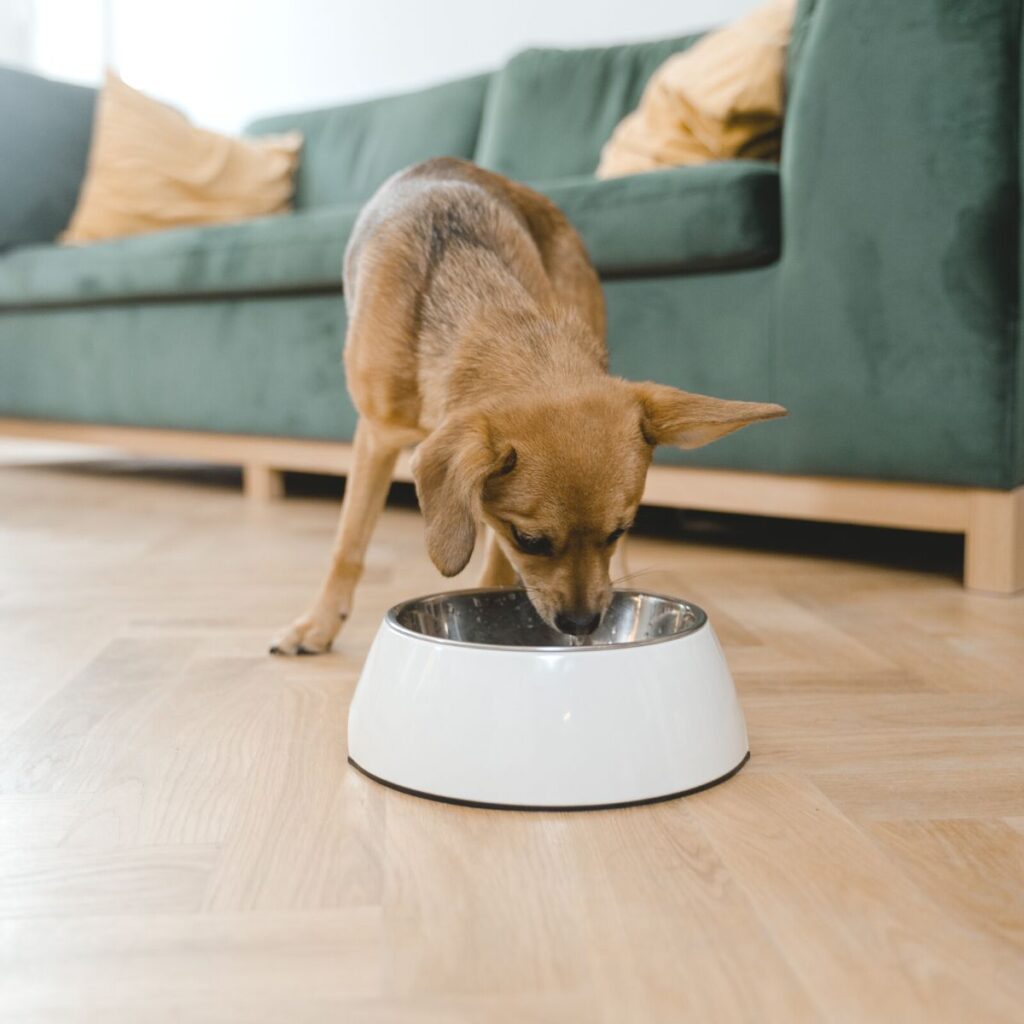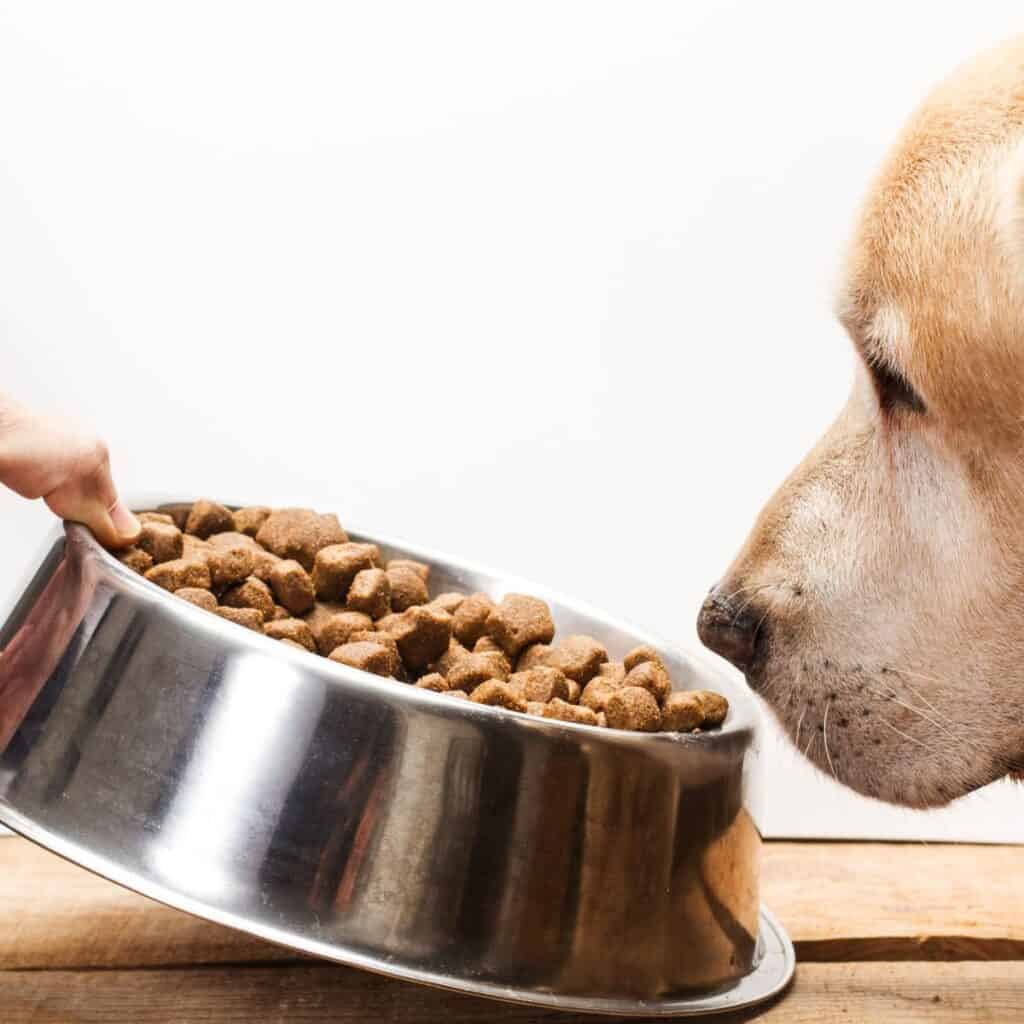Dog diets are a heated subject and senior dog diets do not bring any fewer debates. The questions of whether dogs are herbivores or carnivores, raw food versus cooked, canned versus fresh dog food, homemade versus conventional and many more involving dog diets can start a Facebook debate that you would want to run from.


The complexity and the confusion of dog diets and theories relative to feeding dogs are compounded by creative marketing terms offered by pet food companies like Artisan, Food Grade and Senior Dog Food which ultimately mean nothing.
Directed marketing efforts to senior dogs, especially as the senior dog population and people’s dedication to their health grows are increasingly problematic and confusing for senior dog pet lovers. All of this is a real issue with senior dog food since as we will learn there are very few standards associated with senior dog food.
Do Senior Dogs Need to be on Senior Dog Diets?
It seems to make sense that we would put our senior dogs on a senior dog diet. Recall in our article How to Know if Your Dog is a Senior Dog and Other Senior Dog Facts we discuss what is a senior dog and that is a dog in the later ⅓ of their life. So if you consider that it seems that during those years a special senior diet would be optimal.
The short answer to do senior dogs need to be on senior diets is maybe, and here is why: There is no consistent and set standard definition for what constitutes a senior dog diet. AAFCO, an organization that sets the standard for all dog foods does not have a standard for senior dog diets.
Therefore, it is difficult to suggest that your dog be on a senior dog diet additionally, each senior dog may have a different nutritional need related to any senior dog health issue that they are facing, their nutritional needs may vary based in their breed or stage of life.
The most common life stages you see on bags of dog food at the store are puppy, adult, and 7 years plus in age. However, dog food manufacturers market dog food to specific dogs in many more ways to include a targeted breed, size of the dog, or certain medical conditions.
This is confusing since AAFCO standards are important and and are created by scientists to ensure that all nutrients are included in the food for the stage of life of your dog, AAFCO has created standards for puppies, lactating dogs, and others but there is no AFCO standard for senior dogs!
So, just what is senior dog food? Well, that is what no one knows, since without standards it is difficult to tell, each manufacturer believes that senior dog food is something different.
Are Commercial Senior Dog Foods Different Than Adult Dog Foods?
In short, it seems that many commercial senior dog foods are no different than regular adult dog foods. From a survey of adult dog food ingredients and senior dog food ingredients of two top brands the ingredients were nearly the same.

Susan Thixston reviewed the marketing issues with Senior dog food on her site the Truth About Pet Food and found that despite direct marketing to senior dogs (and the likely price increase for the senior dog food) the ingredients were virtually the same.
Susan explains that each commercially available dog food has an ingredient list in descending order of weight and contents in food if we look at the two brands of senior dog food she reviewed below we see that the top five ingredients are exactly the same.
Purina One SmartBlend Vibrant Maturity 7+ Senior Formula Dog Food
Chicken
brewers rice
corn gluten meal
poultry by-product meal
whole grain corn
Adult maintenance dog food…
Purine One SmartBlend Chicken & Rice Formula
Chicken
brewers rice
corn gluten meal
whole grain corn
poultry by-product meal
And one more Senior dog food…
Iams ProActive Health Adult Chunks Dog Food
Chicken
Corn Meal
Ground Whole Grain Sorghum
Chicken By-Product Meal
Adult maintenance dog food…
Iams ProActive Health Senior Plus under 50 lbs
Chicken
Chicken By-Product Meal
Corn Meal
Ground Whole Grain Sorghum
So, Susan asks the answer to the question ‘are senior pet foods significantly different?’ – no, in most cases there are only minor insignificant differences.
How to Find a Senior Dog Diet that Meets the Needs of Senior Dogs?
With respect to senior dogs, as your dog ages and there is an increase in age year so does the likelihood of developing age related disease. Accordingly, each senior dog has very different needs from in a dog food, says Dr. Tarantino, a practicing vet in Fort Mill North Carolina with a practice focus on senior dogs.
When considering the varying nutritional needs of your senior dog you can and should look for a senior diet to address certain issues your dog is developing not just a dog food targeted to the age.
Most times the issue is mobility, you can find dog diets that address mobility concerns but also other common senior dog issues such as sensitive skin, GI issues, senior dog diets can address disease as opposed to an age group.

You will want to first and foremost understand the health issues your particular senior dog is facing. As we discuss in our article 11 Health Issues That Affect Senior Dogs found here, many senior dog health issues are common amongst this particular age group.
Speaking with your vet about the current health status of your particular senior dog will help guide you in selecting your senior dog’s diet and understanding your dog’s specific nutritional needs.
Senior Dog Issues That May Affect Diet Selection
There are several common senior dog issues that may affect the diet you select for your dog. An example of a few of these are:
A Senior Dog’s Metabolism.
Metabolism changes in senior dogs which leads to a decrease in muscle and an increase in fat. Many senior dog foods do not have reduced calories. Some senior dogs are inclined to gain weight but some certain senior dog’s may also go through a period of not wanting to eat.
Senior Dog Weight Loss
Despite typical changes in metabolism common in senior dogs they may also loose weight. You may need to actually find a dog food with a higher caloric intake during this period.
Senior Dog’s Kidney Issues
Recommended protein amounts vary. Healthy dogs do not need a reduced protein diet but dogs with a kidney issue, which is a common issue in senior dogs should be on a low protein diet.
Condition of Senior Dog Teeth
Certain senior dogs may have had teeth removed or be living with rotten teeth for fear of getting a dental at a later age. With that you may need to select softer treats (check out these easy CBD dog treats for seniors) and foods more suitable for their teeth.
Tips for Choosing a Senior Dog Diet
All this may seem a bit overwhelming but you can make the correct selection of senior dog food and have your dog on a senior dog diet without much work or issue with these tips.
- Look for AAFCO approved foods. AAFCO researches and tests dog foods for the correct balance of ingredients.
- Listen to your Vet. Your vet can identify any health issues and make food recommendations relative to those health concerns.
- Use the WSABA guidelines you can find here which contains a list for pet parents of questions to ask pet food manufacturers about their foods.
- Avoid tricky marketing terms on dog foods. Some red flag terms on the label that should be avoided include foods that have “human grade”, “holistic” etc. These are strictly marketing words to target the consumer and hold no nutritional value for our pets. In fact, much of what we see on dog food bags is marketing and can confuse owners who just want to pick good dog food for their pets. Asking your vet for their recommendation for your pet can be vital to not making mistakes with dog foods.

Certain dog food advocates have done amazing things for the pet food industry that we call Pet Heroes, like Susan Thixton in my book Motherpuppin’ Adorable: What to do when your dog is better than everyone else. They deserve this status for their perseverance in making lives better for dogs by bringing to light the issues in the pet food industry that would otherwise not be widely recognized. You can find latest up to date information with pet heroes like these at Truth About Pet Food.
Senior Dog Diet FAQs
The Association of American Feed Control Officials is a non-profit organization which sets standards for the quality and safety of animal feed and pet food in the United States.
That depends on the health issue or lack thereof that your senior dog is facing. Several brands make Senior Dog Food, one that we like is Farmer’s Fresh but in the end different senior dogs may need different foods.
Talk to your vet and if you see signs of itching, smells, ear issues, you may want to upgrade your senior dog’s diet.
Pet food manufacturer have made feeding our dogs a bit of a trick but with the right information and consideration you can find the correct nutritional match for your senior dog.

